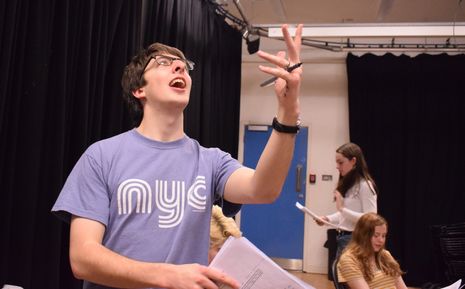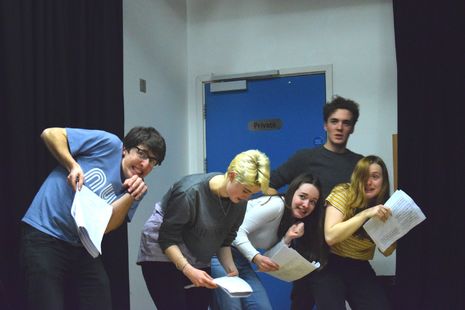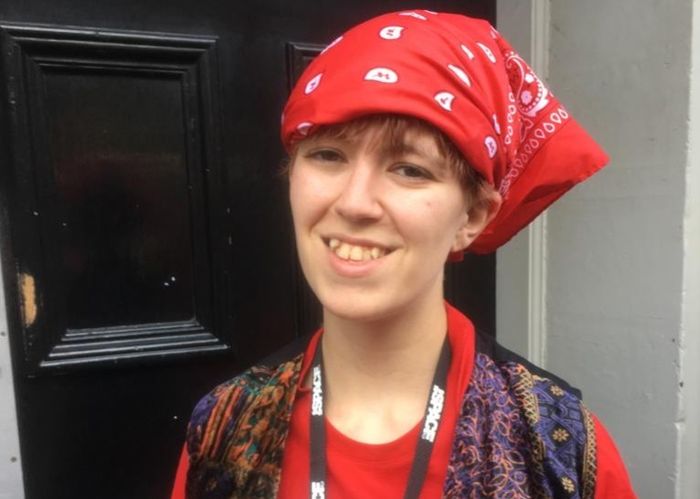How being a student writer showed me that my quirks have value
Joe Venable finds that on the Cambridge Theatre scene, the very qualities that used to make him ‘unprofessional’ become meaningful and worthwhile

My life until Cambridge was a sort of tussle between being ‘theatrical’ and being ‘normal’. There are few places more daunting than a school playground, where a single impromptu rendition of “Mamma Mia” could lose you untold numbers of friends. Towards adulthood, we normally start to find circles willing to put up with our quirkier sides, which at their best allow you to exercise a lot more self-expression. But then you get caught up in the corporate world, and the tedious ideal of “professionalism”.
My first workplace (paper-round excluded) was problematic for my theatrical impulses. Before Cambridge, I spent four years as an apprentice (then freelancer) at the BBC in Southampton. It was kind of a dream come true – I got to work with preposterously funny and talented people, some of whom I’d been listening to for years. But any workplace has a downside.
It wasn’t too bad at first. The apprenticeship was something of a blessing in that my first stories weren’t as tedious as most cub reporters are allocated (magistrate courts, planning committees etc.) but generally light, cheerful things. I went to community celebrations, witnessed odd hobbies, tried ballet – and I was permitted to write these things up with about as much blustering exuberance as I wanted. Nobody seemed to mind the odd flourish of magniloquence, however unnecessary.
But as I moved to less fluffy subjects, I found people grew impatient with my writing style. Editors and producers would tear out my adjectives, pare back my quirky verbs, and demand the destruction of entire sentences that were indeed, on close examination, wholly irrelevant. Calling the local council leader “rhadamanthine” is, apparently, neither big nor clever, even though it is obviously both.
"Just having another person say your words seems somehow to make them matter"
Of course, they were right. Journalism is all about clarity: if the medium (the language, the booming voice, the quirks) becomes too noticeable, it clouds the message you’re supposed to be getting across. Still, it was sad to see a sentence you’d scrupulously sculpted get scratched from your script. I was regularly told my prose was “too theatrical” for news on the radio.
I don’t know if I felt it so much at the time, but looking back, I think it can really get you down to work in a place where you have to restrict your own style so much – and where “theatricality” is a vice rather than a virtue. In truth, there are probably few workplaces where you can express yourself as much as in local radio. But since coming to Cambridge, I’ve taken massive joy in rediscovering my theatrical side. As someone who was sceptical of the idea of going to university, I’d even say the best argument I have for going is that you get to spend three years with as much time and space as you need to express your creativity.
Cambridge is a particularly good place because it treasures theatricality. You can do a smoker with the Footlights, stand on the stage where Emma Thompson or Trevor Nunn started out, gaze up at the Marlowe portraits in literally every single room of Corpus Christi College. Essentially, you can believe that the theatre isn’t just something trivial, an unnecessary aside, a frivolous flourish. You can imagine it could actually be a career, a calling – even that your theatricality might make a mark on the world around it, like so many of your forbears have.

This month, bewilderingly, I’m writing and directing a show, Cymbeline: The Musical, and it’s been an unbelievable joy to find a space where my most facile flourishes and wayward whims actually have a value. Actors take my peculiar words and make something of them – perhaps funny or beautiful, perhaps merely weird. Many of my whims are really very bad – there are multiple reasons why my scripts got cut at the BBC, and in truth, quality was as abundant a reason as theatricality. But just having another person say your words seems somehow to make them matter. That’s very exciting, when you’ve spent four years being told to try and pare that back and get to the point. But this is the joy of theatre – it’s a place where the medium matters. The message can be anything – for some of the best writers, it’s been nothing (oh hi there Beckett!) – it’s all in how you express it.
I have no idea whether Cymbeline: The Musical will be good or bad; I sometimes get a funny feeling it may be absolutely atrocious, though the cast and team bringing it to life are so extraordinary I wonder if they might be about to pull off something unexpectedly spectacular, right under my oblivious nose. But either way, I know that having the space to write it, and to put it on, and to do something entirely without a corporate, commercial purpose, has been a joyously freeing experience. It also makes me fearful of leaving Cambridge, of returning to the sphere of work, where theatricality is deplored (unless I hit the jackpot of working in theatre – but this, I know, is statistically improbable).
Maybe the solution is to reform the world. I personally suspect there are very few industries that couldn’t benefit from more theatricality. Telephone sales could. The weather forecast would be improved. Mortgage advisors are crying out. If we could move the dial on what “professional” means towards “theatrical”, the world would probably be a merrier place. I might make it my project. For the time being, though, I’m content to enjoy Cambridge as a weird, beautiful oasis of topsy-turviness where my least useful character traits from my old life find their fullest and happiest expression and almost seem meaningful. Perhaps I’m just being theatrical, but I have never felt this lucky.
 News / University Council rescinds University Centre membership20 February 2026
News / University Council rescinds University Centre membership20 February 2026 News / Hundreds of Cambridge academics demand vote on fate of vet course20 February 2026
News / Hundreds of Cambridge academics demand vote on fate of vet course20 February 2026 News / Judge Business School advisor resigns over Epstein and Andrew links18 February 2026
News / Judge Business School advisor resigns over Epstein and Andrew links18 February 2026 News / Union cancels event with Sri Lankan politician after Tamil societies express ‘profound outrage’20 February 2026
News / Union cancels event with Sri Lankan politician after Tamil societies express ‘profound outrage’20 February 2026 News / Caius students fail to pass Pride flag proposal20 February 2026
News / Caius students fail to pass Pride flag proposal20 February 2026










